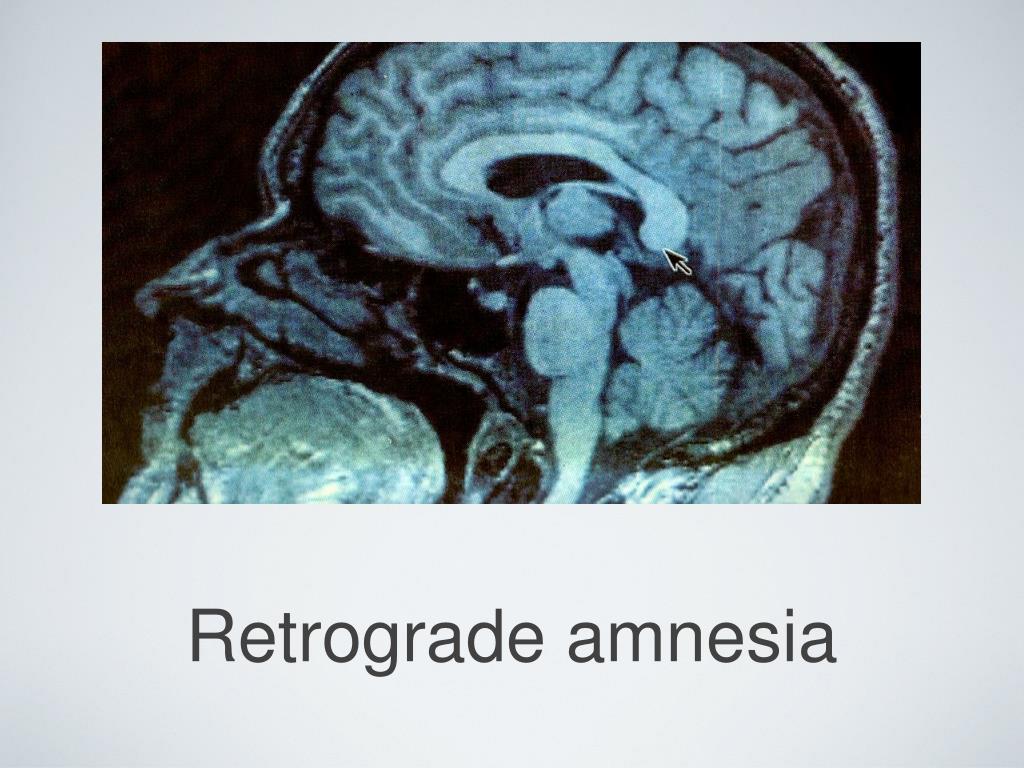
Studies showed that when participants with mild to severe amnesia reviewed the images recorded by their lifelogging devices, it helped to trigger memory recall. The researchers found that this method can be effective in helping to recover memory in amnesia patients. Vitamin B1 (thiamin) supplements in cases of a deficiencyĪnother option, described in a 2021 review, is called "visual lifelogging" - using a wearable camera to capture your daily life activities.Sometimes, the damage is permanent, and sometimes the brain is able to heal.Īccording to Hascalovici, treatments are usually focused on managing the symptoms of amnesia so you're able to perform daily responsibilities and lead a fulfilling life.

Whether or not you fully recover depends on the scope and severity of the brain damage, says Hascalovici. There is no cure for anterograde amnesia, but it is treatable. However, Hascolovici notes that wearing a helmet during athletic activities, wearing a seatbelt in the car and practicing safe driving, and avoiding excessive alcohol consumption can help reduce your risk of anterograde amnesia. Some of these factors may be outside of your control.

Warner notes that certain lifestyle choices and other factors can also increase your risk of anterograde amnesia. Brain damage from a traumatic brain surgery.Head injuries: including concussions and traumatic brain injuries.Warner, PhD, a licensed clinical psychologist at 1AND1 Life, these are some of the most common causes: Dementia can affect both distant and recent memories, whereas anterograde amnesia only affects your ability to remember new things and not events that occurred before the amnesia set in.įinally, while anterograde amnesia only impacts memory, dementia can cause brain damage that leads to other cognitive challenges, like loss of coordination and motor functions, or difficulty with spatial and visual abilities.ĭepending on the cause, anterograde amnesia can happen suddenly or take time to develop, says Hascalovici.Īll causes of anterograde amnesia involve some kind of stress or trauma to the brain. While anterograde amnesia can be temporary, dementia is permanent. Diseases like Alzheimer's do often involve memory loss, but there are some distinct differences. Filling in gaps in your memory with fabricated events (confabulation)Īnterograde amnesia is often mistaken for other conditions that involve cognitive decline, like dementia, says Hascalovici.Forgetting things that happened just hours or moments before.Inability to remember new acquaintances made after amnesia set in.Trouble remembering life events that happened after the amnesia-causing event, like a move or job change.Other areas near the hippocampus can also be damaged, says Hascalovici, including the basal forebrain, fornix, and medial temporal lobe.Īccording to Hascalovici, these are some of the most common symptoms associated with anterograde amnesia: The hippocampus is a part of the brain located in the inner temporal lobe, which plays a key role in the long-term storage of new memories. Here's what to know about the causes, symptoms, and treatment options for anterograde amnesia.Īs with other forms of amnesia, anterograde amnesia often happens when the hippocampus is damaged, says Hascalovici. Note: A small 2015 study showed that it's not uncommon for patients with anterograde amnesia to also have retrograde amnesia. "Occupational therapists and other professionals can help people with anterograde amnesia relearn certain skills and master tasks that support everyday functioning, like being able to go to appointments and schedule reminders of certain daily commitments," he says.

ANTEROGRADE AMNESIA VS RETROGRADE AMNESIA QUIZLET FULL
He adds that not all people with anterograde amnesia will experience a full recovery, but it's definitely treatable and sometimes temporary. Retrograde amnesia: Impairs your ability to remember anything that occurred before the amnesia set in but doesn't impair your ability to make new memories.Īnterograde amnesia is significantly more common than retrograde amnesia, according to Jacob Hascalovici MD, a board-certified neurologist and chief medical officer at Clearing. As a result, you may have trouble recalling things that happened in the recent past - like what you had for breakfast - but easily remember things that happened prior to the amnesia-causing event.Ģ. Anterograde amnesia: Your brain becomes unable to form new memories or store new information after the amnesia-causing event. There are two main types of amnesia, or memory loss:ġ.


 0 kommentar(er)
0 kommentar(er)
